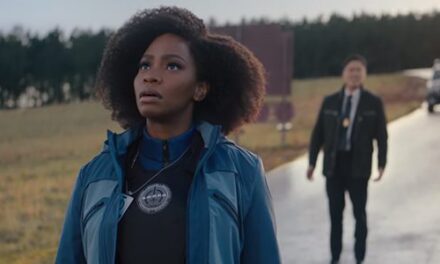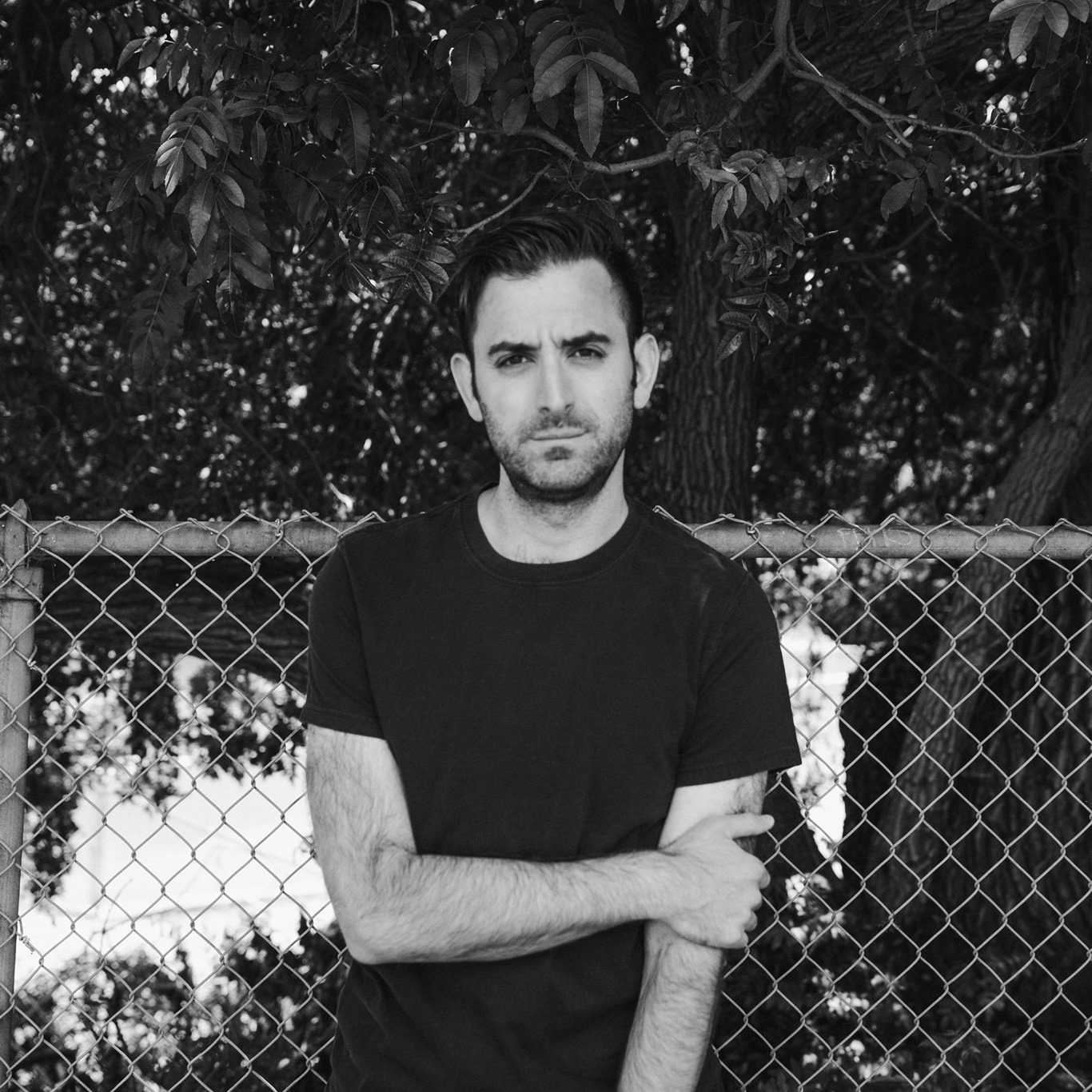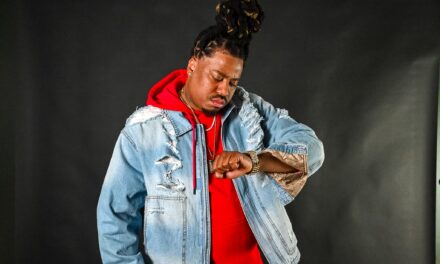I try to be frank when it comes to my mental health. I used to think that meant admitting “I struggle with depression and anxiety” or “I have scars on my arms from self-injury,” but recently I’ve had a feeling that there’s something more nuanced to it than that. If we’re going to be honest – truly honest – it’s important to talk about what we feel and experience and deal with on a daily, or yet minute by minute, basis. Over the past few years more and more musicians have admitted that they’ve had struggles with mental illness; it’s a comforting thought to hear that your favorite band has dealt with the same things you have. But there’s something special to be said about a band, or an album, that cuts right to the core of what you’re feeling and the nuances of what it’s actually like experiencing that on a daily basis; I’ve found that in Hodera‘s forthcoming album First Things First, which landed in my inbox early in September.

As a writer I recognize that I’m sharing my thoughts with the world, but when I’m writing things down (or rather typing them out) I tend to forget that other people will (hopefully) read them. The minute I hit “publish” is a bit of relief mixed with abandon. Now that my thoughts are out in the world, they’re not just mine anymore. If I share my deepest thoughts and experiences for the world to read, there might be negative consequences but perhaps I won’t be so alone in what I’m feeling.
I don’t know much about Matthew Smith’s personal experiences, or what inspired him to write the songs on First Things First. But maybe that doesn’t matter; maybe it’s not about the experiences but the feelings they create. I can’t speak to his truths but I can speak to my own, and I will say that this album speaks to many of my truths. I didn’t expect this album to cut as deep as it did, but the fact that it caught me so off-guard might be exactly why it resonates.
Depression is a funny beast; it can be so overpowering that sometimes you lose touch of your personality, and have trouble differentiating between your true self and the mental illness. These thoughts saying I’m not enough and that I’m a failure aren’t some mental illness taking over; surely they’re just part of my DNA. The opening track of First Things First, “Out of Sync”, resonates here; in the first verse Smith admits, “There’s nothing too wrong with my existence/ So why does it still feel like there’s something missing?” It’s a plea I found myself asking whoever it is that’s out there as I recovered from knee surgery earlier this year. My career plans were thrown completely off track, but were my feelings due to the surgery or was it something more internal? I began to feel certain that my feelings of failure- “emotions so potent, thought that they’d never end”- were there to stay and were due to my own shortcomings and laziness. When I first heard the line “I wanna be a better version of me / Cuz I’m kinda selfish and my willpower is weak”, I paused the album and leaned back in my chair. My first reaction to the song was an expletive; I was so overcome by how deeply it hit me, I couldn’t find proper words. What was on the forefront of my mind wasn’t “what I was feeling” but rather how strongly the song made me feel. I stopped what I was doing and let the song soak in.
When your brain is what’s sick, nowhere is safe. When you’re at home, you don’t quite want to be there because all you can think of is how your loved ones don’t really care about you; at school or work, it’s that you’re a failure. And so you feel trapped. Sleep sounds good- it always sounds good- but sometimes your mind is so busy it doesn’t happen, and when it does it’s with the knowledge that tomorrow will hold more of the same: “But when I go to sleep at the end of the day/ Not as the person I was but just his hollow frame/ I can’t just wake up and things will be okay”, Smith screams at the end of “Four White Walls.”
Music has always been the one safe place where I found relief. On the album, Smith repeatedly sings about Montclair and I have strong memories of shows in a Montclair basement known as The Batcave- some of which Hodera played- that, during some of the points where my life felt most bleak, offered a temporary reprieve. The closing track “Holding Patterns” features voices of several individuals expressing frustrations over the job search, post-graduation depression, and their own fears that they’ll never be better, and I wonder if any of these people are familiar faces from those shows (they probably are). In depression there is no comfort, no place where everything feels okay; that feeling is claustrophobic and sometimes leads to wanting to die. For myself, and for everyone whose words were included on “Holding Patterns”, those brief moments of escape we found at a Montclair basement show may not make the problems go away, but for a few hours, they can make the weight a little less heavy.
It’s weird to look back on my high school years and the first years after college graduation because I remember that I was on anti-depressants, but mostly what I remember is that I didn’t feel like myself because of them. On “Four White Walls”, Smith sings, “I woke up today with no memory of the last decade”; the best way I can describe what it was like to come off medication after two or three years is that a veil had been lifted. Immediately I felt like myself again, but there’s been a battle ever since of wondering if I should go back on. Would medication prevent me from reaching a low point again, or would it just turn me in to a zombie? Later on “My Daily Chemicals” he laments about loneliness and longing for the past along with the realization that medication can make you feel flat: taking his “daily chemicals” makes him feel like he’s “cut out all the variables that push me to the brink.”
They tell you “there’s nothing wrong with you”; they say “depression is not your fault”; they tell you “you’re not alone.” But when you’re depressed you don’t often believe these things (if you believed them, after all, you would no longer be depressed). Hearing songs that say “it gets better” can be nice when you’re in the mood, but when you’re not, what’s needed is catharsis, a song to relate to how deeply you’re hurting and the frustration of screaming at the sky, “Is there something wrong with me?” (which Smith ponders on “North Dakota”). On “Highways” he sings of loneliness: “Where do I belong? I don’t know,” he repeats. Right now, I have a sense of where I want to belong but I still question- despite evidence I’m welcomed and wanted- if I truly do. The experiences that inspired Smith to write these songs may have been different from the experiences that come to mind for me as I write this, but maybe it’s more important for our feelings to be understood than for our experiences to match.
I tend to throw around the line “This song made me cry at my desk!” quite a bit, but as I listened to “Just For Today” for the first time while in the office, I actually lost it. I couldn’t make it through the song the first time- I had to pause it halfway through because of how deeply it was hitting me. I couldn’t make it all the way through the second time either; as I’m writing this I’m listening for a third time and have gone from overwhelmed at work to crying in a Starbucks, wondering if the baristas are more concerned by my tears or the three hours I’ve spent sitting here.
Through all of my battles with mental illness, one truth I held deeply to myself- one thing I wanted to believe in, that I hoped with the last inch of hope that I had at my lowest moments- was that things would get better. And so when I found out that an old classmate had taken her life, I was devastated. She should still be here, I thought. I went to a show the next night and walked around that venue in a daze, more than once collapsing against the wall, crying, struggling to verbalize what I was going through. As I write about this the feelings are painfully fresh; the release date of First Things First (October 20th) coincides with the anniversary of her passing. I’ve never really talked about it because I never felt like I could, but to say I don’t still feel sad about it would be wrong; I still don’t want to believe it’s true. It’s weird to think that the loss of someone I hadn’t talked to in years would affect me so much, but knowing that someone I’d remembered as friendly and bright couldn’t see any light in the world made me feel like there might not be any hope for me, either.
It’s been a long time that I’ve struggled with depression and anxiety and I fear that those demons will never go away. I’m not sure they ever will. At 26 I have some sort of handle on them, at the very least, but when I heard the line “So I tell myself just for today, I’ll be stronger than my demons, and I know they won’t go away…” it reminded me that sometimes I just have to take it one day at a time. It’s been ten years since I’ve picked up a razor blade and taken it to my arm; if you’ve never been in that place, you might not understand what would possess someone to do that, but try to understand that it doesn’t always make sense. Even at that point I didn’t really think cutting was the answer to my problems- I had a vague awareness that it wouldn’t solve anything- but I was so distressed that I just wasn’t sure what to do. Fuck, that hurts- but it was a distraction from everything I was feeling inside.
I’d be lying if I said I didn’t still think about hurting myself but I’ve managed to be stronger than my demons for a decade now and I think that’s something. When things get difficult, trying to get past it forever and thinking too far down the road is overwhelming. And so in my darkest moments I took things one day at a time, and when I needed, one hour, or just a few minutes, at a time. Just hold on through today, I’d tell myself. Just today. If you survive today, then you can think about tomorrow. I’d write notes and make plans but I guess there was something that told me, You can write this note right now, but don’t act on it; for today, you have to be strong.
I listened to First Things First for the first time while I was at work. I paused it a few times when I had to talk to a coworker but for the most part, I was absorbed. When I finished the album I took out my headphones and didn’t listen to anything- save for office chatter- for over an hour. I was taken aback by the album I’d just heard; it had hit feelings so strong and so deep, I needed time to feel them before I could listen to anything else. I listened again and began to collect my thoughts in emails back and forth to myself, and listened a third time at Starbucks, and a fourth, at 2am on my couch.
I was afraid of writing this piece, or perhaps I should say afraid of publishing it. Things become real when you write them down and I was so uncertain about ever letting these words see the light of day that I didn’t save a draft to my computer; all I have are my emails to myself. That feels less permanent and there was some safety in knowing maybe these words would just live in my inbox forever. I wonder what it was like for Smith to write the songs on First Things First; did he feel any of the same hesitancy I do? I said earlier in this piece that aside from what he’s said in these songs, I don’t know what’s in his head and I don’t know what he deals with on a daily basis. Perhaps I’ll never know what it is he wrote the songs about but I have this idea that it doesn’t matter. In hearing him open up and share his entire self, I’ve found the courage to do the same. I’ve made myself vulnerable right here; but with that vulnerability comes the fact that I’m still here- and for that I’m grateful.
Hodera will release First Things First on October 20 via Take This To Heart Records; pre-orders are available here. The band will be touring all over the US this fall; for a full list of upcoming shows, head to their Facebook.













